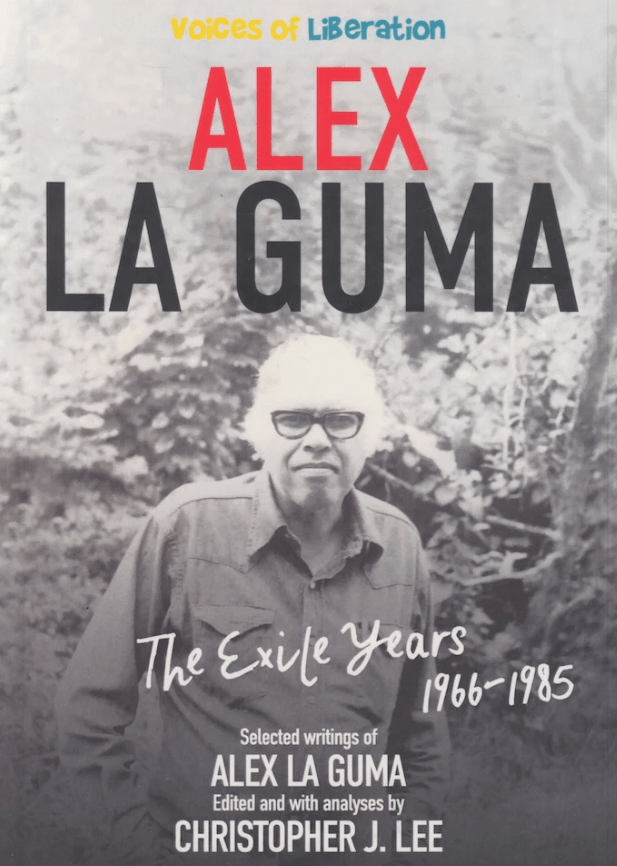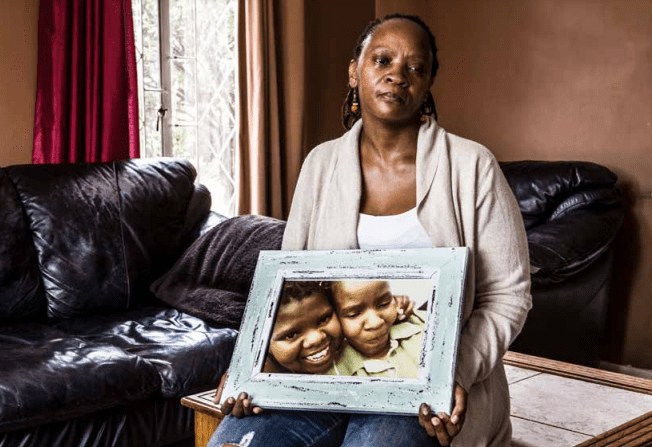Alex La Guma and Third Worldism: A legacy of global activism
The writer grew and evolved in exile — but he never truly left South Africa

When Alex La Guma, the activist and famed writer of A Walk in the Night (1962), went into exile in 1966, he left South Africa and his cherished birthplace of District Six never to return. Unlike many of his peers, he never had a chance to come home and witness the long-awaited transition to democracy.
Instead, he died unexpectedly of a heart attack in Havana, Cuba, in 1985 during the liberation struggle, having committed himself fully to writing and diplomacy for the ANC and the South African Communist Party (SACP).
Havana might have been his last home but it formed part of a broader geography for La Guma. Though leaving for exile with his wife Blanche, and two sons Eugene and Barto, had palpable costs, La Guma also entered a new world of freedom, politics and intellectual engagement in the decades ahead.
Having experienced extended periods of house arrest and solitary confinement in South Africa, the sense of freedom he attained was undoubtedly liberating from a personal standpoint. La Guma’s British passport, acquired after he first arrived in London, enabled him to travel the world. However, as a communist internationalist, his political commitments actually motivated him to do so.
The result of these extensive travels was an eclectic series of essays, pieces of reportage, speeches, reviews, short stories, memoirs and other writings that have recently been collected in Alex La Guma: The Exile Years, 1966-1985.
La Guma visited a wide assortment of places, including Algeria, Lebanon, India, Vietnam, Germany, Tanzania, the Caribbean, Eastern Europe, Central Asia and the Soviet Union. In essence, he documented in personal and political ways the emergent Third World — what is referred to today as the Global South — and its benefactors, such as the USSR.
Much of this exile writing has remained unknown, having received only scholarly attention. La Guma is still thought of as an elegist for District Six, having depicted its crowded urban landscape and vibrant atmosphere with vivid detail in A Walk in the Night, his first novel, which has since become a canonical work of South African literature.
La Guma’s fiction remained anchored in Cape Town. His second novel, And a Threefold Cord (1964), completed before he left for exile, depicts the plight of shack dwellers on the Cape Flats. His third, The Stone Country (1967), addressed incarceration in a fictionalised version of the Roeland Street Prison, where La Guma had been detained. In the Fog of the Seasons’ End (1972) examined the activist underground in the Mother City, of which he was a key part.
These fictional works were unmistakably political, depicting the commonplace ways that apartheid affected ordinary people, especially working-class Capetonians, whether through racial profiling, prison, police brutality or abject poverty.
The frequent violence in his novels was never entirely attributable to any single person or community. It was contingent and random, reflecting systemic conditions of precarity and injustice that made people constantly vulnerable. Many of the issues that La Guma identified persist today.
However, reading La Guma’s South African fiction, including his memorable short stories, gives only a brief sense of his writing life and a limited view of his generative imagination. Once in exile, he began writing prolifically for journals and periodicals like Sechaba, The African Communist, Présence Africaine, The Black Scholar and Tricontinental. These periodicals and others were based in locales like Paris, Havana and the US. Sechaba and The African Communist, which were venues for the ANC and SACP, respectively, contributed to the liberation struggle.
La Guma addressed a range of topics. He argued in support of uMkhonto weSizwe’s armed struggle. He wrote about apartheid legislation, such as the Immorality Act, for the UN. He described his attendance at the first Pan-African Cultural Festival in Algiers, Algeria, in 1969.
He eulogised international writers such as Octavio Paz and Maxim Gorky. He reviewed fellow South Africans like Athol Fugard, Nadine Gordimer and Oswald Mbuyiseni Mtshali. Not least, he wrote two memoir essays that movingly explained why he joined the communist party.
La Guma also tested his fiction writing in new contexts. Notably, he wrote a short story set in North Vietnam, based on a visit there, titled Thang’s Bicycle. Consisting entirely of Vietnamese characters, it is a parable about the resilience of the Vietnamese against both French and American imperialism. A second story, Come Back to Tashkent, is set in the Uzbeki city in central Asia — again, a departure from his more familiar South African environs.
These experiments reflected his travels as well as his involvement with the Afro-Asian Writers Association, an organisation that brought together novelists, poets and dramatists from both continents with the purpose of restoring local literary and cultural traditions after decolonisation. La Guma received the association’s 1969 Lotus Prize for literature along with the Palestinian poet Mahmoud Darwish. Later recipients included Chinua Achebe and Ngũgĩ wa Thiong’o.
The Afro-Asian Writers Association consequently provided La Guma with an international community of writers that was politically and intellectually minded, in addition to being committed to the literary arts. As he would write in a 1973 essay for Lotus: Afro-Asian Writings, the organisation’s journal, the purpose of this community, which held conferences in places like Beirut, Luanda and Tashkent, was to bring “the literature of our continents into the arena of world literature”.
In summary, La Guma’s exile was a time of connection and possibility. Like many other South African activists and writers, his decision to leave was difficult, based on concerns for his family’s safety as well as his political commitments. In some ways, La Guma never entirely left, with his fiction providing him with a constant means to reconnect with the country he passionately loved.
Yet, it is also important to acknowledge La Guma’s internationalism and how he became a globally recognised writer after his departure from South Africa. He would be elected the second secretary general of the Afro-Asian Writers Association in 1979. As an activist and writer, he played a key role in drawing connections between the South African liberation struggle and those elsewhere in Southern Africa, South-east Asia, the Caribbean and Palestine.
La Guma insisted that South Africa’s situation was not unique. It was a crucial part of a broader fight pitting the Third World against the last remnants of empire. His prolific body of exile writing demonstrates the steadiness and momentum of this vision.
La Guma believed he would return home. That he did not remains a source of lament. However, we have his exile writing as a means of solace, which reveals his growth and evolution while away. His devotion to South Africa never diminished. It was only supplemented by a new and more expansive dedication to the world.
Christopher J Lee is a historian and the editor of Alex La Guma: The Exile Years, 1966-1985, recently published in the Voices of Liberation Series by the HSRC Press.
What's Your Reaction?

































